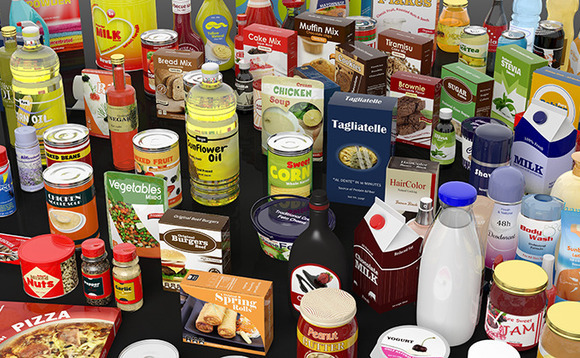
Packaging sector poised to secure status as PE pillar stone

Private equity appetite for the packaging sector slowed down in 2016 amid global political uncertainty. Nevertheless, deal makers remain convinced the market is stable and point to the drivers that will help it rebound in 2017. Amedeo Goria reports
Figures from unquote" data highlight a slowdown in private equity activity across the European packaging industry in 2016. Looking at the statistics, 2014 marked a buoyant recovery in the wake of a gloomy six-year post-crisis period. GPs injected an aggregate of €6.4bn into the sector in 2014, and €4.3bn in 2015. This had slowed by more tha half in 2016, to just €2bn.
During the last three years, the industry witnessed several large-cap deals, above €500m, which drove a surge in aggregate values. In February 2014, Montagu Private Equity spun out Nemera, the healthcare devices and prescription retail divisions of UK consumer packaging company Rexam, for $805m. Subsequently, Clayton Dubilier & Rice acquired Germany-based Mauser Group for approximately €1.2bn in May, while Canadian GP Onex Partners bought Swiss business SIG Combibloc Group for €3.75bn in November.
More recently, the industry saw Apollo back Verallia's LBO for an enterprise value of €2.9bn in June 2015 and CVC Capital Partners fully acquire Swedish group ÅR Packaging in May 2016 in an SBO estimated to be worth more than €500m. Moreover, The Carlyle Group signed two large-cap deals across the European packaging sector over the last three years. In June 2016, the GP purchased a significant minority stake in Logoplaste, a family-owned Portuguese business, in a deal that valued the company at €660m EV, while in December 2015 it backed the SBO of French bottle manufacturer Saverglass, estimated to be worth €560m.
Speaking to unquote", Carlyle managing director Alex Wagenberg says: "Packaging has always been an attractive space for private equity. The sector witnesses stable merger activity, in which private equity has played an important role in consolidating the industry and building businesses around those assets."
There is some risk connected with raw material volatility, which is not great for private equity, but it has been solved over time either by better contracts being put in place with clients or through vertical integration" – Alex Wagenberg, Carlyle
Nowadays, there are also a large number of secondary deals, says Wagenberg: "Companies operating in this sector are well-known businesses and some packaging groups have become larger and more international, increasing exit opportunities for asset managers. Furthermore, banks and financing markets are generally familiar with the sector and there is a long history of financing across those businesses with bonds being traded over a long time."
Middle man
Against the backdrop of this positive track record, this is a "fairly stable business", says Wagenberg, because packaging producers hold an essential role within the consumer-oriented society. However, they find themselves in a particular position within the value-creation chain, between raw material distributors and industrial players. "There is some risk connected with raw material volatility, which is not great for private equity, but it has been solved over time either by better contracts being put in place with clients or through vertical integration," says Wagenberg.
However, this is not the only challenge for deal makers in the sector. "It is also a very local business, and deeply connected with its distribution chain, which means that production plants are located close to customers as well as spread geographically across all the market. This aspect requires a broad strategic perspective from investors," says Wagenberg.
Moreover, retail packaging is a capital-intensive business, which is not necessarily the best for private equity, admits Wagenberg. He says fund managers can find a way to compete by providing capital needed to boost technology innovation. Indeed, technology plays an important role in boosting production while containing costs, as well as reducing waste. Higher sophistication for printing and converting machines is necessary to compete internationally but also requires strong management skills to oversee spending efficiency with regards to maintenance and expansion of production capacity.
This said, packaging is also a highly diversified sector, which requires specific expertise to maximise performances across its sub-sectors. Packaging producers operate in several segments, including food and beverages, personal care, cosmetics and healthcare. Each sub-sector presents specific drivers and trends, but some, such as pharma packaging, require higher capital investments and expertise in order to manage stricter regulatory environments.
Packaging in white chambers
Most recently, Italian buyout house PM & Partners sold its controlling stake in pharma packaging producer Plastiape via a trade sale for an estimated €150m EV. According to unquote" data, the GP originally acquired the business three years earlier in a deal valuing the business at €71m EV. Andrea Mugnai, founding managing partner at PM & Partners, tells unquote": "Pharma packaging is actually undergoing a strong consolidation trend, mainly caused by two drivers."
The first such driver is the strong consolidation process taking place across the pharmacology industry, which also brings about M&A in suppliers' sectors, such as packaging producers. Furthermore, says Mugnai, "during the last few decades, pharma corporates aim to acquire patents from small biotechnology businesses or generic-drug producers, instead of developing their research departments, and consequently focus more on marketing strategies." In particular, generic-drug producers focus increasingly on reformulations of existing products – which also include the development of new delivery devices – and subsequently aim to sell these products back to pharma corporates for international distribution.
As a result, packaging producers have an edge when it comes to new market opportunities. On the one hand, pharma corporates are investing in new market strategies, while on the other, researchers are developing new drug delivery devices, says Mugnai.
The second driver relates to recent innovation prompted by plastic-based products. "Traditionally, glass has been considered the main raw material for pharma packaging industries, due to hygiene regulation during production," says Mugnai. However, following recent technological improvements, "plastic is now considered equivalent to glass". This fact has opened large opportunities for packaging producers, he explains: "Several packaging industries are converting their business to plastic-based production and creating strong consolidation trends across the sectors, which sees traditional players focusing on organic and external growth to limit newcomers' ability to penetrate the market."
In contrast to other packaging sub-sectors, pharma packaging endures high levels of regulation, which may be different in each country. Therefore, investors face high costs for validation from national authorities and by putting in place hygienic production plants, or so-called white chambers. According to Mugnai, businesses operating in this sector experience lower pressure on the sell side, given the high level of value added to the product.
With an ongoing consolidation process, the defensive nature of the sector and its immunity to economic volatility, in addition to recent technological innovation, the pharma packaging sub-sector is increasingly attracting the interest of investors. With private equity houses able to provide fresh capital and managerial expertise to a segment with high profit margins, it appears dealflow in the packaging sector will remain strong, despite its recent slowdown in activity.
Latest News
Stonehage Fleming raises USD 130m for largest fund to date, eyes 2024 programme
Sponsor acquired the public software group in July 2017 via the same-year vintage Partners Group Global Value 2017
Stonehage Fleming raises USD 130m for largest fund to date, eyes 2024 programme
Czech Republic-headquartered family office is targeting DACH and CEE region deals
Stonehage Fleming raises USD 130m for largest fund to date, eyes 2024 programme
Ex-Rocket Internet leader Bettina Curtze joins Swiss VC firm as partner and CFO
Stonehage Fleming raises USD 130m for largest fund to date, eyes 2024 programme
Estonia-registered VC could bolster LP base with fresh capital from funds-of-funds or pension funds









